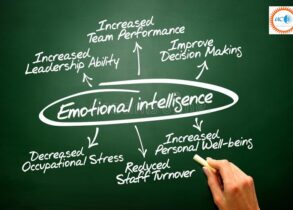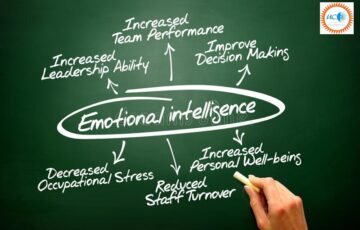Emotional Intelligence
Q. The core of high Emotional Intelligence is self-awareness. If you don’t understand your own motivations and behaviors, it is nearly impossible to develop an understanding of others. Discuss with the help of appropriate examples
Emotional intelligence is the ability to recognise, understand and manage one’s own emotions as well as that of others. An emotionally intelligent person is competent in four areas i.e. Self- awareness, Self-management, Social awareness and Relationship management. Among these four, the core of high emotional intelligence is Self-awareness i.e. the ability to accurately perceive our own emotions, strengths, limitations, motivations, etc. and understand how they affect a person and those around and shapes the individual’s behavior.
Benefits of self-awareness are:
- It helps in self-evaluation, accepting constructive feedback.
- Understanding one’s motivation and values in life helps a person enjoy what they do and keeps them focused even in case of a setback.
- Those who are aware of their limits refrain from setting an unrealistic goal for oneself or for the
organization.
- Ability to relate and empathize with those in a similar situation, which creates sensitivity in a person towards any issue. It also helps in earning loyalty of the peers.
- It helps in dealing with external factors that cannot be controlled and behaving appropriately in
adverse situations.
For instance, being stuck in traffic after a long day at work can make one angry and agitated with the rest of the day being negatively influenced by it. This may further affect one’s interaction with others at home. If, however, one is self-aware, then the person at least has the option to change the way he reacts to it. One can actually decide that being stuck in traffic will not bother him. In absence of self-awareness, however, not only one’s interest but also interest of people dependent on him also gets affected.
For instance, an administrator who is not aware about his or her motivation for delivering public
services may impact his behavior which might further aggravate the issue. For instance, while
serving in a backward district, a bureaucrat may readily indulge in corruption for personal gains but this not only tarnishes his image but also impacts the well-being of those residing in those areas. Such actions also alienate the administration from the very people it intends to serve.
Similarly, parents who fail to identify their own motivations and responsibilities to inculcate values and sense of affections in the family might end up with their children falling prey to drug abuse, bad influences, etc.
Therefore, evaluation about self-awareness with regard to attributes like attitude, behavior, responsibilities, motivations is also necessary for high emotional intelligence in absence of which a person fails to identify and connect with the emotions of others.







